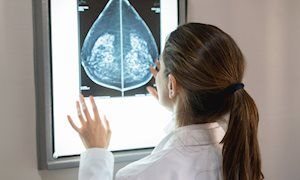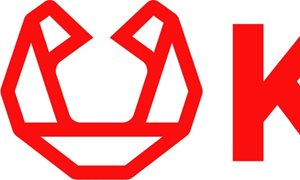9 January 2020
Extremely dense breast tissue is a risk factor for breast cancer and limits the detection of cancer with mammography. Data are needed on the use of supplemental magnetic resonance imaging (MRI) to improve early detection and reduce interval breast cancers in such patients.
Methods
In this multicenter, randomized, controlled trial in the Netherlands, we assigned 40,373 women between the ages of 50 and 75 years with extremely dense breast tissue and normal results on screening mammography to a group that was invited to undergo supplemental MRI or to a group that received mammography screening only. The groups were assigned in a 1:4 ratio, with 8061 in the MRI-invitation group and 32,312 in the mammography-only group. The primary outcome was the between-group difference in the incidence of interval cancers during a 2-year screening period.
Results
The interval-cancer rate was 2.5 per 1000 screenings in the MRI-invitation group and 5.0 per 1000 screenings in the mammography-only group, for a difference of 2.5 per 1000 screenings (95% confidence interval [CI], 1.0 to 3.7; P<0.001). Of the women who were invited to undergo MRI, 59% accepted the invitation. Of the 20 interval cancers that were diagnosed in the MRI-invitation group, 4 were diagnosed in the women who actually underwent MRI (0.8 per 1000 screenings) and 16 in those who did not accept the invitation (4.9 per 1000 screenings). The MRI cancer-detection rate among the women who actually underwent MRI screening was 16.5 per 1000 screenings (95% CI, 13.3 to 20.5). The positive predictive value was 17.4% (95% CI, 14.2 to 21.2) for recall for additional testing and 26.3% (95% CI, 21.7 to 31.6) for biopsy. The false positive rate was 79.8 per 1000 screenings. Among the women who underwent MRI, 0.1% had either an adverse event or a serious adverse event during or immediately after the screening.
Conclusions
The use of supplemental MRI screening in women with extremely dense breast tissue and normal results on mammography resulted in the diagnosis of significantly fewer interval cancers than mammography alone during a 2-year screening period. (Funded by the University Medical Center Utrecht and others; DENSE ClinicalTrials.gov number, NCT01315015.).
Publication
Supplemental MRI Screening for Women with Extremely Dense Breast Tissue.
Bakker MF, de Lange SV, Pijnappel RM, Mann RM, Peeters PHM, Monninkhof EM, Emaus MJ, Loo CE, Bisschops RHC, Lobbes MBI, de Jong MDF, Duvivier KM, Veltman J, Karssemeijer N, de Koning HJ, van Diest PJ, Mali WPTM, van den Bosch MAAJ, Veldhuis WB, van Gils CH; DENSE Trial Study Group.

In the New England Journal of Medicine, the DENSE trial study group including Ritse Mann and Nico Karssemeijer showed that additional MRI after the nationwide breast screening, reduces interval breast cancer in women with extremely dense breast tissue.
Abstract
BackgroundExtremely dense breast tissue is a risk factor for breast cancer and limits the detection of cancer with mammography. Data are needed on the use of supplemental magnetic resonance imaging (MRI) to improve early detection and reduce interval breast cancers in such patients.
Methods
In this multicenter, randomized, controlled trial in the Netherlands, we assigned 40,373 women between the ages of 50 and 75 years with extremely dense breast tissue and normal results on screening mammography to a group that was invited to undergo supplemental MRI or to a group that received mammography screening only. The groups were assigned in a 1:4 ratio, with 8061 in the MRI-invitation group and 32,312 in the mammography-only group. The primary outcome was the between-group difference in the incidence of interval cancers during a 2-year screening period.
Results
The interval-cancer rate was 2.5 per 1000 screenings in the MRI-invitation group and 5.0 per 1000 screenings in the mammography-only group, for a difference of 2.5 per 1000 screenings (95% confidence interval [CI], 1.0 to 3.7; P<0.001). Of the women who were invited to undergo MRI, 59% accepted the invitation. Of the 20 interval cancers that were diagnosed in the MRI-invitation group, 4 were diagnosed in the women who actually underwent MRI (0.8 per 1000 screenings) and 16 in those who did not accept the invitation (4.9 per 1000 screenings). The MRI cancer-detection rate among the women who actually underwent MRI screening was 16.5 per 1000 screenings (95% CI, 13.3 to 20.5). The positive predictive value was 17.4% (95% CI, 14.2 to 21.2) for recall for additional testing and 26.3% (95% CI, 21.7 to 31.6) for biopsy. The false positive rate was 79.8 per 1000 screenings. Among the women who underwent MRI, 0.1% had either an adverse event or a serious adverse event during or immediately after the screening.
Conclusions
The use of supplemental MRI screening in women with extremely dense breast tissue and normal results on mammography resulted in the diagnosis of significantly fewer interval cancers than mammography alone during a 2-year screening period. (Funded by the University Medical Center Utrecht and others; DENSE ClinicalTrials.gov number, NCT01315015.).
Publication
Supplemental MRI Screening for Women with Extremely Dense Breast Tissue.
Bakker MF, de Lange SV, Pijnappel RM, Mann RM, Peeters PHM, Monninkhof EM, Emaus MJ, Loo CE, Bisschops RHC, Lobbes MBI, de Jong MDF, Duvivier KM, Veltman J, Karssemeijer N, de Koning HJ, van Diest PJ, Mali WPTM, van den Bosch MAAJ, Veldhuis WB, van Gils CH; DENSE Trial Study Group.
Related news items

Awarded KWF grants for Radboudumc researchers
18 December 2019 KWF is investing 2.7 million euros in five different studies at Radboudumc. The awards are part of the new round of funding by DCS, in which over 34 million euros will be granted to Dutch cancer research. We congratulate our researchers with this funding and wish them success with their great work. go to page
ERC Consolidator Grant for Bousema and Sechopoulos
12 December 2019 Teun Bousema and Ioannis Sechopoulos each receive an ERC Consolidator Grant of around two million euros. This European research subsidy will enable them to carry out research for the next five years. go to page
Technology for Oncology II grant application funded
21 November 2019 The grant application called "aiREAD – Accurate and Intelligent Reading for EArlier breast cancer Detection” by project leader Ioannis Sechopoulos, has been selected for funding under the NWO TTW – KWF Kankerbestrijding – Top Sector LSH Partnership “Technology for Oncology II”. go to page
VIDI grant for Ritse Mann
27 May 2019 Ritse Mann, theme Women's cancers, receives up to 800,000 euros to develop an innovative research theme and to build up his own research group. NWO is awarding the Vidi grant as part of the Innovational Research Incentives Scheme. go to page
Artificial intelligence vs. 101 radiologists for breast cancer detection
7 March 2019 In an article appearing in the journal of the National Cancer Institute, Ioannis Sechopoulos and colleagues showed that current artificial intelligence systems can detect breast cancer in mammograms as well as a breast radiologists. go to page